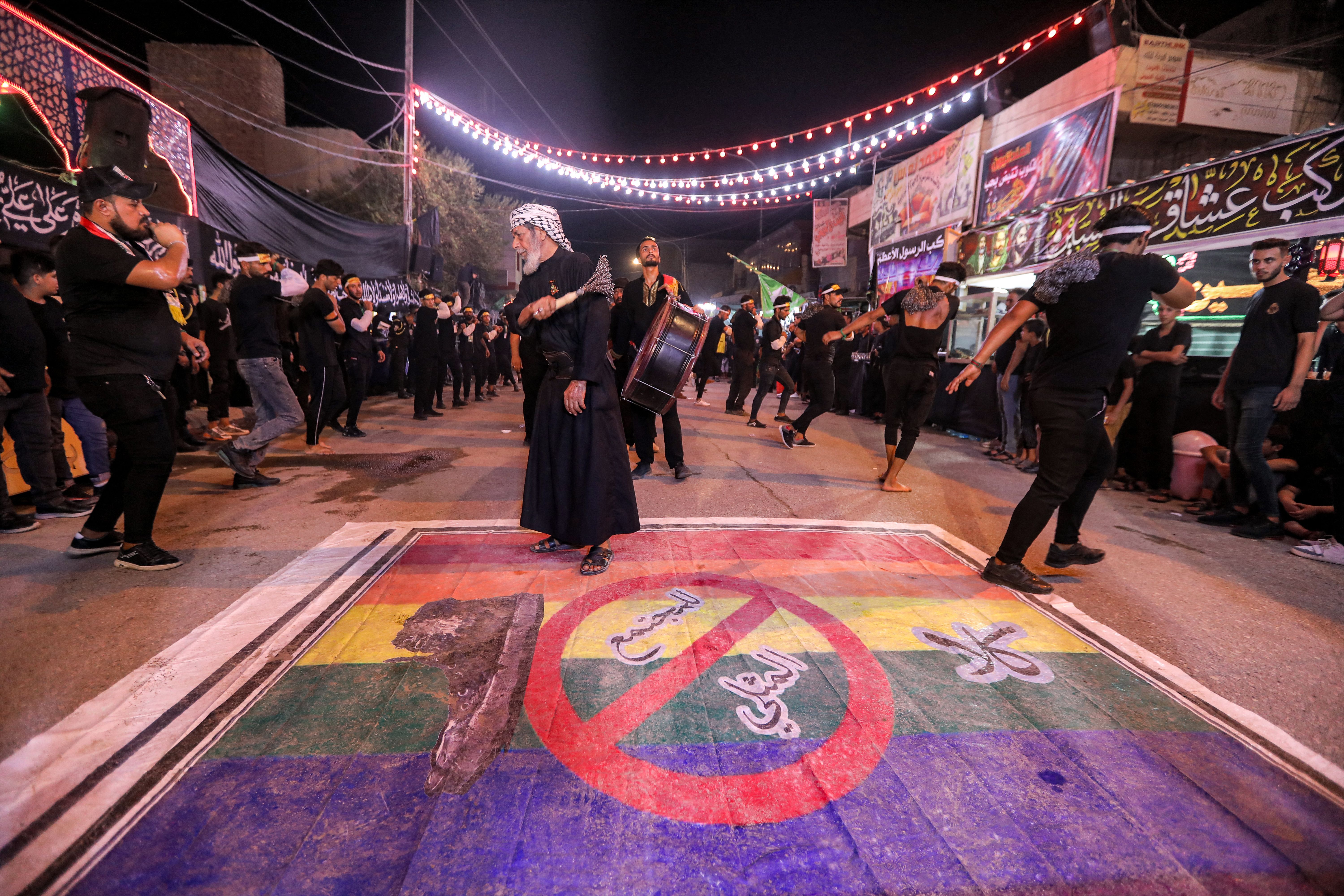Iraq passes new ‘morality’ law criminalising same-sex relationships
Law also includes prison sentence for anyone who changes their ‘biological gender’ or dresses in an effeminate manner

Your support helps us to tell the story
From reproductive rights to climate change to Big Tech, The Independent is on the ground when the story is developing. Whether it's investigating the financials of Elon Musk's pro-Trump PAC or producing our latest documentary, 'The A Word', which shines a light on the American women fighting for reproductive rights, we know how important it is to parse out the facts from the messaging.
At such a critical moment in US history, we need reporters on the ground. Your donation allows us to keep sending journalists to speak to both sides of the story.
The Independent is trusted by Americans across the entire political spectrum. And unlike many other quality news outlets, we choose not to lock Americans out of our reporting and analysis with paywalls. We believe quality journalism should be available to everyone, paid for by those who can afford it.
Your support makes all the difference.Iraq has passed a sweeping anti-LGBT+ law that criminalises same-sex relationships and could see gay people sentenced to up to 15 years in prison if convicted.
The law, which was passed by Iraq’s parliament on Saturday, purports to “protect Iraqi society from moral depravity and the calls for homosexuality that have overtaken the world”.
The Law on Combating Prostitution and Homosexuality, described as a bid to uphold the Islamic nation’s religious values, stated same-sex relations are now banned in Iraq and punishable by a prison sentence of at least 10 years, up to a maximum of 15.
Any individual who “promotes” homosexuality or prostitution would face at least seven years in prison, the law said. An earlier version of the bill imposed the death penalty for same-sex acts but the clause was removed in an amendment amid strong opposition from the US and European nations.
The law also imposes a prison sentence between one to three years for anyone who changes their “biological gender” or dresses in an effeminate manner.
The bill saw staunch support from conservative Shia Muslim parties helming the largest coalition in Iraq’s parliament but met with widespread condemnation from the international community and human rights groups.
A statement from the US State Department said: “This amendment threatens those most at risk in Iraqi society. It can be used to hamper free speech and expression and inhibit the operations of NGOs across Iraq.”
Rasha Younes, deputy director of the LGBT+ rights programme at Human Rights Watch, said: “The Iraqi parliament’s passage of the anti-LGBT law rubber-stamps Iraq’s appalling record of rights violations against LGBT people and is a serious blow to fundamental human rights.”
Iraq was until now among the few Islamic nations that did not explicitly criminalise gay sex, but loosely defined morality clauses in its penal code have still been used to target LGBT+ people.
Several members of the community have also been killed by armed groups and individuals.
More than 60 countries criminalise gay sex, according to Our World in Data.
Join our commenting forum
Join thought-provoking conversations, follow other Independent readers and see their replies
Comments